
Microbiology & Hygiene ANALYTICS IN THE AREA
Hygiene controls / hygiene monitoring
Horn & Co Analytics GmbH is registered as a drinking water testing laboratory for microbiological and chemical tests in accordance with the German Drinking Water Ordinance and is licensed as a microbiological laboratory under the German Infection Protection Act (IfSG).
Modern laboratory equipment and experienced and qualified staff guarantee a wide range of tests. In addition to the classic water tests (drinking water / bathing water), we also offer various hygiene services for clinics, retirement and nursing homes. We also carry out the tests required by the RKI for dental units at dentists and orthodontists.
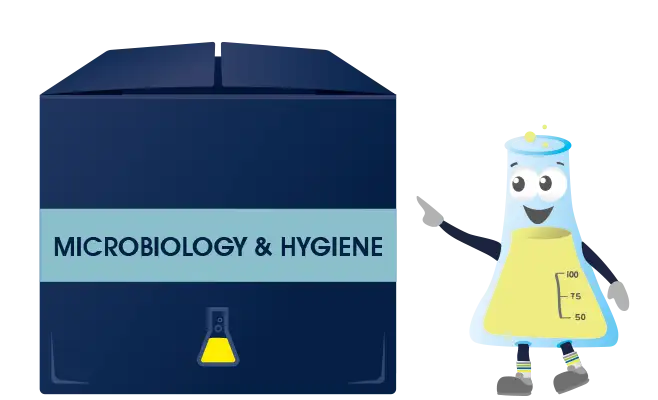
These systems are decentralized devices that produce ready-to-use disinfectant-water mixtures at the push of a button. This allows even non-hygiene-trained personnel to easily operate the equipment. However, improper use can lead to contamination with pathogens. Since these mixtures are often used in high-infection-risk areas, regular microbiological testing is essential.
Sampling by our qualified personnel
Testing according to the recommendations of the Disinfectant Commission of the VAH (VAH Hyg Med 2013 38-3)
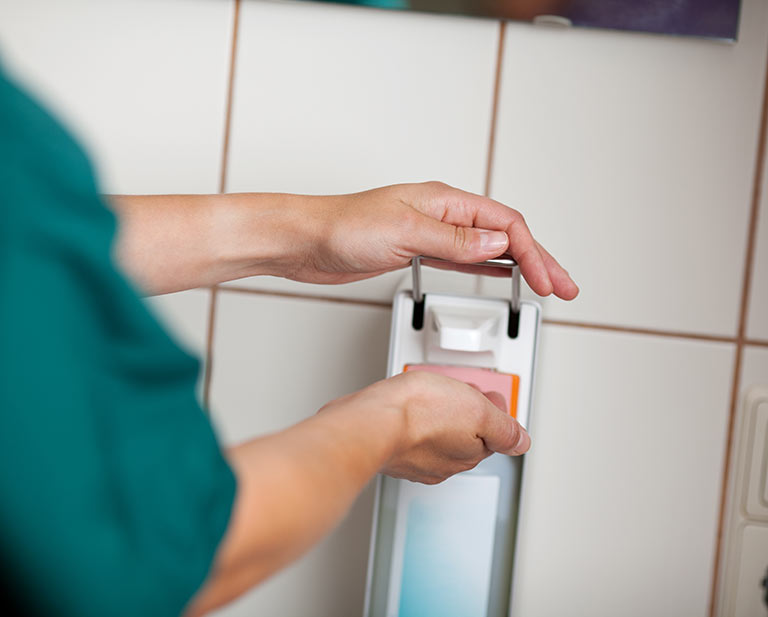
Laundry from nursing homes and clinics must be washed in such a way that microorganisms capable of causing infections are eliminated. This is generally achieved through the use of disinfectant chemo-thermal washing processes. To ensure not only visual cleanliness but also the microbial safety of the laundry, the washing machines should undergo regular microbiological testing.
Testing of washing programs using biological indicators according to RKI and VAH guidelines
Analysis of the final rinse water
Contact plate testing of washed and dried laundry
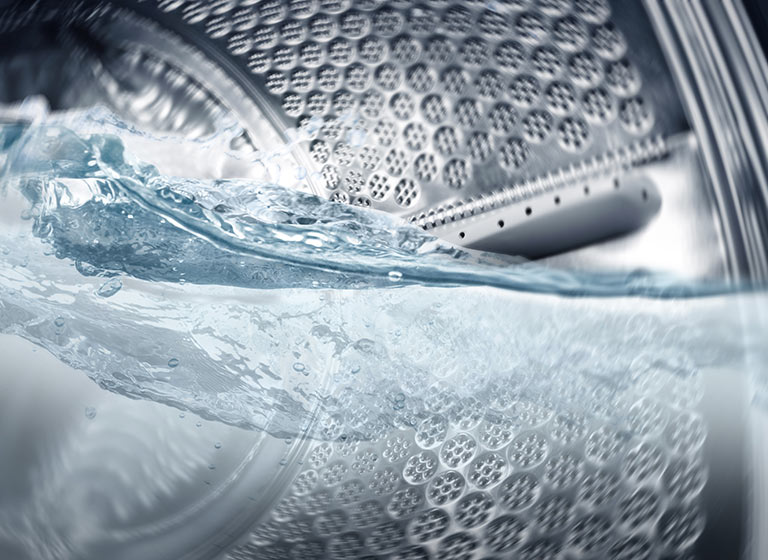
Bedpan washers are used for cleaning and disinfecting containers for human waste, such as bedpans and urine bottles.
The antimicrobial effectiveness of thermal disinfection is determined by the achieved A0 value, which is based on the temperature reached and the holding time. In Germany, an A0 value of 600 is considered necessary for non-critical medical devices (those that come into contact only with intact skin), according to the DGKH guidelines.
Testing with indicators including contamination test soils and Enterococcus faecium (DSM 2146)
Sampling and evaluation by qualified lab personnel
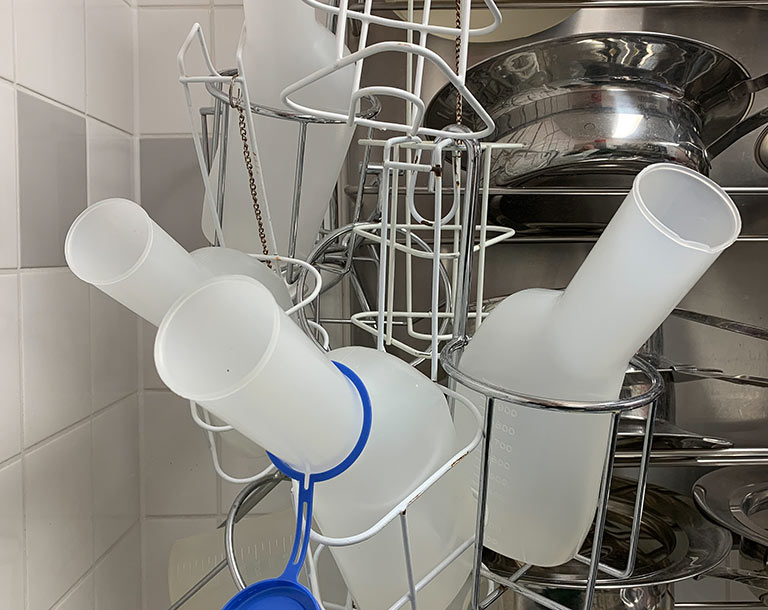
Used dishes are always microbiologically contaminated, with microorganisms coming from both food residues and the individuals using the dishes. Since visual inspections cannot determine the microbial load of the dishes after going through commercial dishwashers (single and multi-tank or conveyor dishwashers), regular microbiological testing is necessary. Household dishwashers are not covered by standards such as DIN 10510, DIN 10512, or DIN EN 17735 (2023-02), but their testing is conducted in alignment with these legal guidelines.
Contact plate testing to determine the colony count on dish surfaces
Determination of the colony count in the detergent solution
Use of bioindicators with RAMS as test contamination and E. faecium (DSM 2146)
Sampling and evaluation by qualified lab personnel
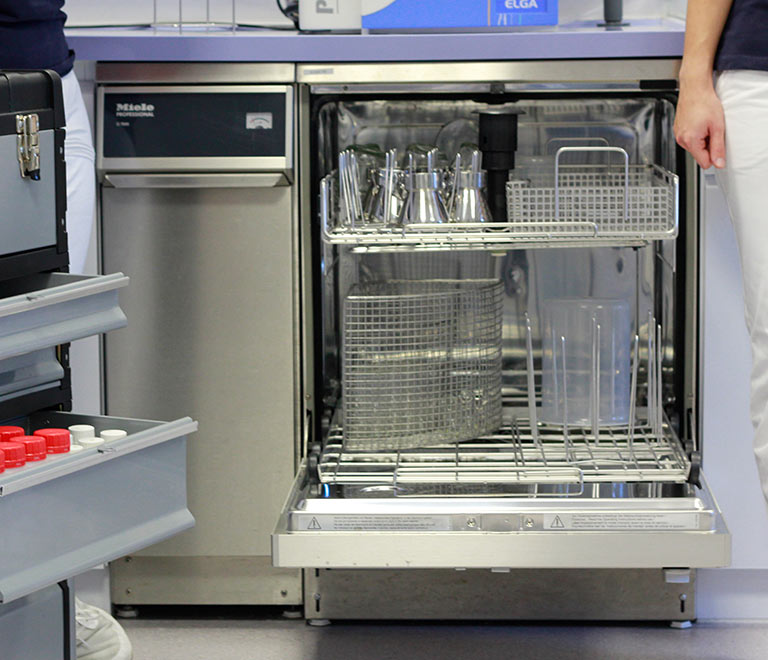
In addition to steam sterilization, hot air sterilization is another physical method for sterilizing medical products.
To ensure the elimination of germs such as bacteria, viruses, fungi, and spores in a dry environment, a temperature of at least 180°C for 30 minutes is required. This makes the method particularly suitable for heat-resistant instruments such as scissors or tweezers.
Due to the lower costs for acquisition and operation, these devices are commonly used in nail and beauty salons.
Shipping of materials and instructions (available for download)
Spore strips with Bacillus subtilis (DSU 13019) as a biological indicator (according to DIN EN ISO 11138-4)
Analysis by qualified staff at our laboratory
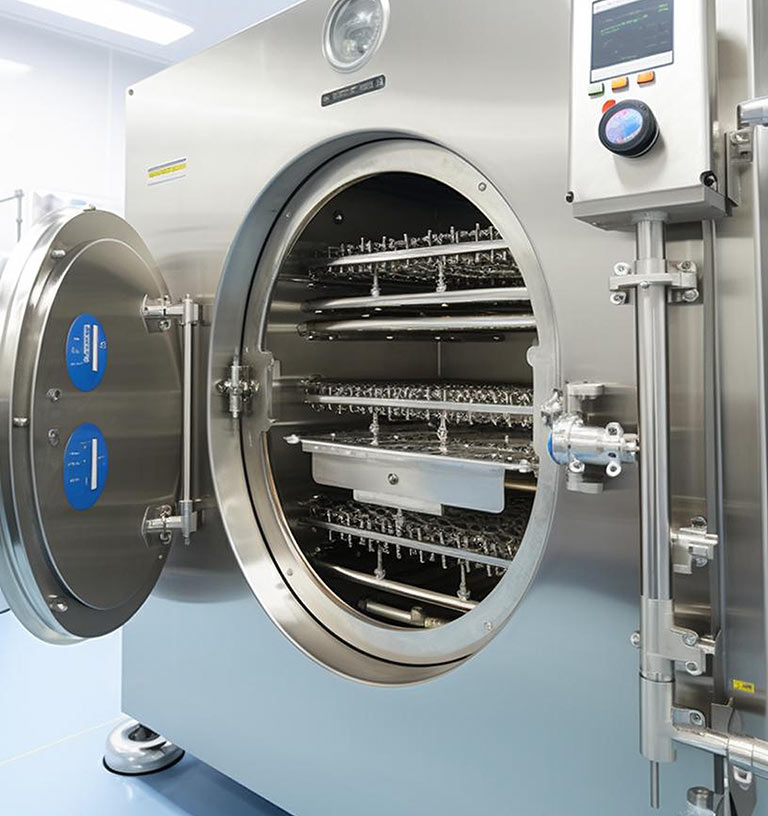
Water from dental treatment units is subject to special hygiene requirements, as defined by the Commission for Hospital Hygiene and Infection Prevention (KRINKO) at the Robert Koch Institute (RKI).
The RKI's recommendation "Infection Prevention in Dentistry - Requirements for Hygiene" (available for download) suggests at least annual testing for the total germ count at 36°C and for Legionella. For immunosuppressed patients, the water should also be free from Pseudomonas bacteria. Criteria for evaluating the microbiological quality of water from dental units will be included in the upcoming KRINKO recommendation "Hygienic Investigations in Medical Facilities," which is currently being developed.
Sampling by our qualified staff
Testing according to RKI recommendations and the Drinking Water Ordinance (TrinkwV)
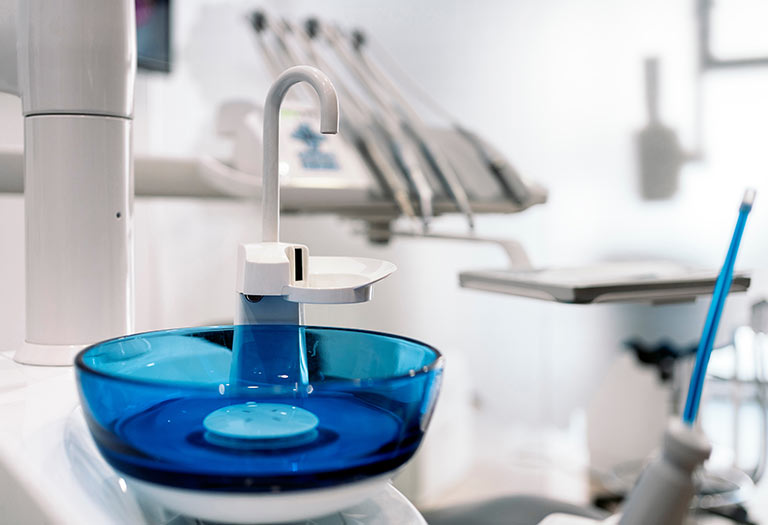
For enquiries about these analyses, please contact our laboratory team at anfrage@industrial-lab.de or get in touch with your contact person:
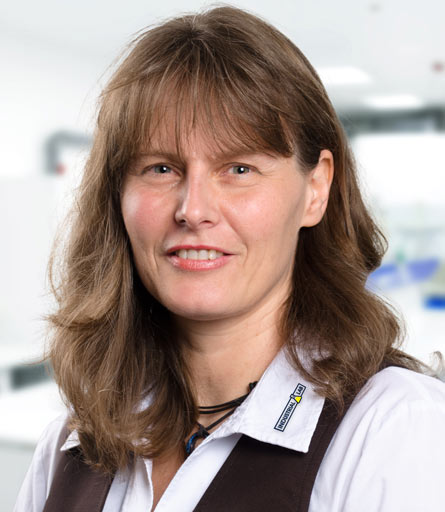
Head of department
Microbiology
02762 9740 - 83
Send e-mail
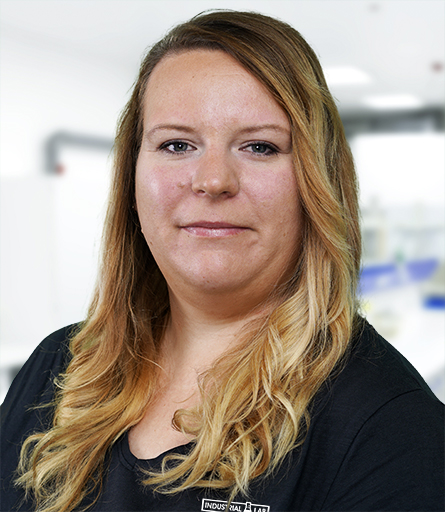
Microbiology
02762 9740 - 30
Send e-mail